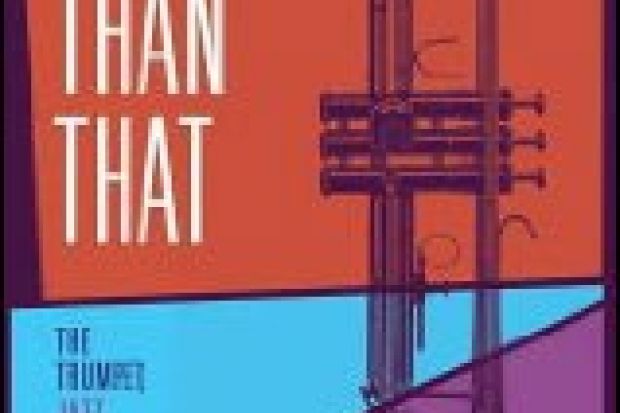The unfulfilled promise is that this book will provide "a cultural history of the trumpet from its origins in ancient Egypt to its role in royal courts and ... its stunning appropriation by great jazz artists". Despite its flaws, which are not inconsiderable, it ends up being both interesting and, in some places, compelling, but for reasons one suspects that Krin Gabbard did not intend.
The idea is that the trumpet is unique among musical instruments because it has embodied meanings beyond its actual musical purpose, and that this takes on a new turn with the advent of jazz, when it gained prominence because of its sonic impact and the masculine and sexualised codes it conveyed. Many great players make appearances, but three are in the foreground: Buddy Bolden, Louis Armstrong and Miles Davis.
Bolden is the stuff of legend; there are no recordings of his playing, just one photograph and many testimonies to his reputation and influence in those early days in New Orleans, before his descent into alcoholism and lunacy. Armstrong was important to many avenues of 20th-century music. His celebrity as a movie star tends to obscure the true extent of his virtuosity and the fact that he, as much as anyone, was a point of reference for an entirely new mode of musical communication. Then there was Davis, who reinterpreted the way the jazz trumpet spoke: soft, subtle, lucid, smooth and "cool", while immersing himself in the darker side of the spectrum of human behaviour.
Gabbard romps perilously through the history of the trumpet. He does history badly - very badly: generalisations come easily, his faith in anecdote is relentless and he resorts to cliche without hesitation. It is not the errors of detail that irritate most, but the throwaway line that shows he has missed the point so emphatically.
For example, the Renaissance trumpet was not merely "an accoutrement to a king's ego". Like many other aspects of court music before the 18th century, it was an essential tool of diplomacy. This is why trumpeters, the most symbolic of all musicians, required licences to practise their art. This is also why they were used as emissaries and not mere messengers - because they represented proximity to and intimacy with the very centres of aristocratic and monarchic power. By skating over this, Gabbard misses a fundamental point in the argument he tries to convey.
He is better in some places - particularly in the excellent, bittersweet chapter on Miles Davis; but this serves only to emphasise the faults elsewhere in the book. It has little to do with history, and the cultural approach is suspect, too. Gabbard is good on American cinema and he sometimes lets this shine through, but the inconsistencies are too numerous and the episodic structure is less than helpful.
The book's core problem, and paradoxically its redemption, is that its author clearly went native either before or while he was writing it. He reveals himself as a hopeless enthusiast, hypnotised by his subject, wallowing in anecdote and the star-struck thrill of his proximity to the impressive array of players, instrument-makers and the legion of other trumpet-folk he encountered during his endeavours. He learnt to play the trumpet - badly, so it seems - and did all he could to hang around those joints where proper trumpeters were found. This eavesdropping on a world that fascinates him turns out to be interesting, and it provides something of a cultural story, if not a history. Literature about instruments is replete with formal musicological and organological approaches; this approach ends up being quite novel.
Then there is the masculinity and sex thing. It comes and goes; for long periods we are free of it, then a couple of paragraphs appear like sentries, to remind us that it is still there. It is a limp way to address what was supposed to be, and may indeed be, an important part of the story, but in the absence of a more compelling argument, we are left thinking that sometimes a trumpet really is just a trumpet.
Hotter Than That: The Trumpet, Jazz, and American Culture
By Krin Gabbard
Faber and Faber, 2pp, £17.28
ISBN 9780571211999
Published 28 October 2008
Register to continue
Why register?
- Registration is free and only takes a moment
- Once registered, you can read 3 articles a month
- Sign up for our newsletter
Subscribe
Or subscribe for unlimited access to:
- Unlimited access to news, views, insights & reviews
- Digital editions
- Digital access to THE’s university and college rankings analysis
Already registered or a current subscriber? Login
